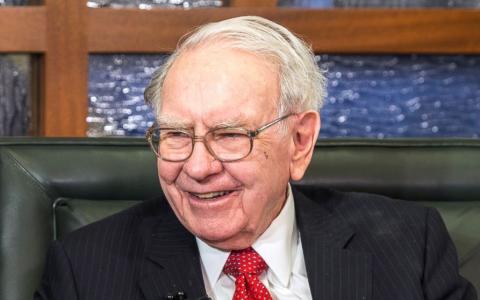
Who wouldn't love to replicate the investing success achieved by billionaire Warren Buffett? This is why investors are drawn to stories about the "Buffett Indicator."
Lately, the Buffett Indicator has been flashing a warning sign about the stock market. Many outlets have been reporting on this including Fortune, Bloomberg, the Wall Street Journal, Business Insider, MarketWatch, and even Yahoo Finance.
For those catching up, the Buffett Indicator is the value of a country's publicly traded stocks divided by its gross national product (and different people have different ways of accounting for those inputs). This ratio first became associated with Buffett in a 2001 interview with Fortune's Carol Loomis where the investor characterized the ratio as "probably the best single measure of where valuations stand at any given moment."
At the time he noted, the ratio was very high in the late 1990's, portending the dot-com bubble which eventually burst.
And now that this ratio is exceeding levels seen during that era, people are sounding the alarm again. Even Elon Musk has put a spotlight on the metric via a tweet.
But should investors really be worried?
ARK Invest's Cathie Wood responded to Musk by questioning the ratio's efficacy in a series of tweets last Monday and last night.
"GDP statistics evolved during the Industrial Age and do not seem to be keeping up with the digital age," Wood said on Twitter. "Thanks to productivity, real GDP growth probably is higher and inflation lower than reported, suggesting that the quality of earnings has increased significantly."
What does Warren Buffett think about it?
Buffett actually made some important statements about the metric, which often gets overlooked.
"The ratio has certain limitations in telling you what you need to know," he said in that 2001 Fortune interview. At the time, he didn't give specifics. But one thing is clear: it's not the be-all and end-all predictor of market peaks.
At the 2017 Berkshire Hathaway (BRK-A, BRK-B) annual shareholders meeting, Buffett fielded a question about the Buffett indicator as well as Robert Shiller's legendary CAPE ratio. He had this to say: “Every number has some degree of meaning. It means more sometimes than others...And both of the things that you mentioned get bandied around a lot. It’s not that they’re unimportant… They can be very important. Sometimes they can be almost totally unimportant. It’s just not quite as simple as having one or two formulas and then saying the market is undervalued or overvalued.” (Emphasis ours.)
In that response, Buffett went on to say "the most important thing is future interest rates," arguing that low rates justify higher valuations.
My colleague Brian Sozzi also made a critical observation in reporting on the Buffett Indicator, noting that Buffett has been buying stocks despite his namesake indicator being so high. You'd think that if Buffett was worried about the Buffett Indicator, he'd be dumping stocks. But that's not what's happening. At the end of 2020, Berkshire Hathaway had a stock portfolio worth $280 billion, up from $248 billion the year prior.
Who knows? Perhaps Buffett will change his decades-long bullish tone on the stock market at Berkshire Hathaway's annual shareholders meeting (which Yahoo Finance will livestream exclusively on May 1).
The bottom line is you shouldn't jump to conclusions based on a cursory reading of a single ratio.
This article originally appeared on Yahoo! Finance.



